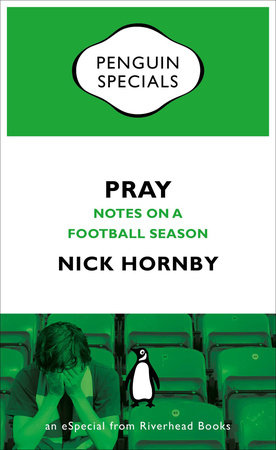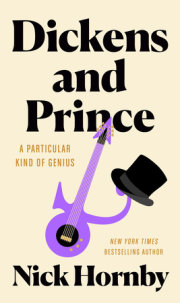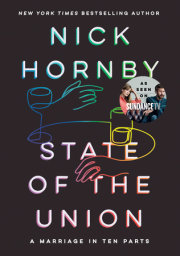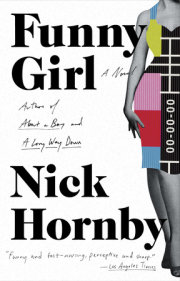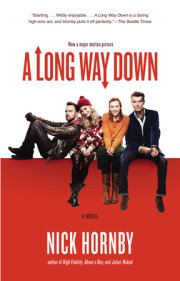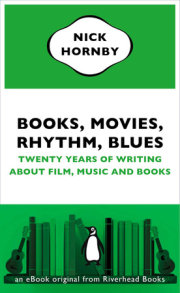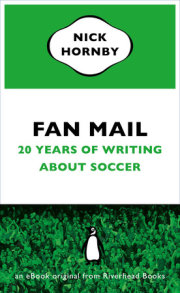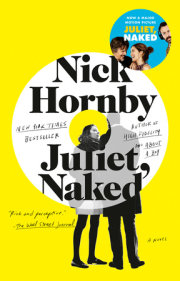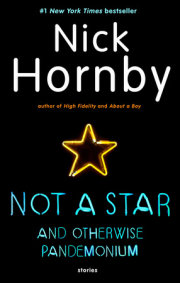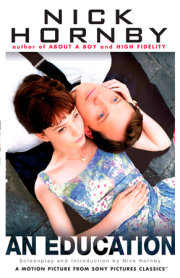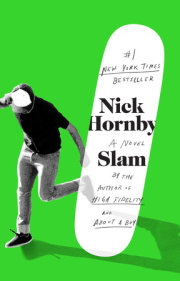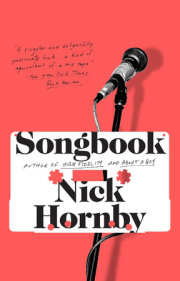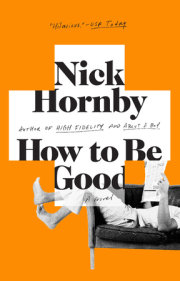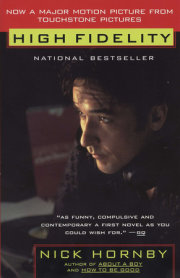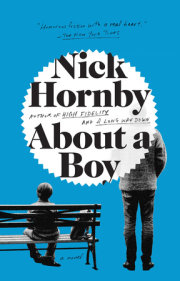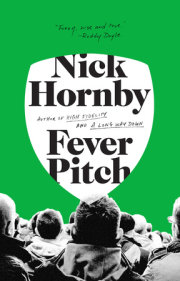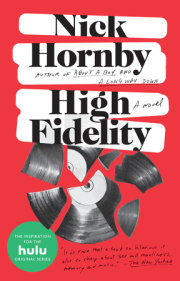Pray: Notes on the 2011/2012 Football SeasonSunday, 28 August 2011
Spurs 1 Manchester City 5
Manchester United 8 Arsenal 2
Uh-oh. What else were you supposed to think on this third weekend of the new season, if you supported a Premiership team other than one of the Manchester clubs? Maybe you weren’t too worried if you followed Chelsea, the only team rich enough to compete with City and United. But if you were a fan of Arsenal, or Spurs, or Liverpool, and you’d begun to half wonder whether your team stood half a chance, with a fair wind and a short injury-list, of becoming champions, then this was when you woke up. And if you were a fan of a club that you knew already was going to struggle for survival, then you probably started doing some multiplication sums in your head: so Arsenal finished fourth last year, and they let in eight. We finished sixteenth, which means … And the most shocking piece of information these scores contained wasn’t revealed until the very last day of the season, nearly nine months later: this wasn’t just Manchester against North London. This was, as it turned out, the best two teams in England playing the third- and fourth-best teams in England. There was very little difference between third place and fourth in the final table; after what seemed like weeks of mediocrity, when neither team could get a win no matter who they played, Arsenal finished a point ahead of Spurs. And, of course, there was only goal difference between the two Manchester clubs. But the gap between Manchester and North London was nineteen points, or six wins and a draw. It hasn’t always been the biggest and richest clubs who finish champions. Seven different teams came top of the First Division in the twenty years before the Premiership began in 1992: Aston Villa (with Ipswich Town, who should have won it that year, in second place), Derby County, Nottingham Forest, Arsenal, Leeds United, Everton, and, eleven times, Liverpool – who weren’t richer than any of the others, just better and smarter and more industrious. There were several other teams who were certainly able to compete financially with any club in that list, most notably Manchester United, who not only failed to win the old First Division in that time but actually managed to get themselves relegated. More or less the moment the Premiership began in 1992, that all changed. TV money came pouring in, players were free to move from one country to the next, the gap between big and small clubs became accentuated. Manchester United won the first Premiership trophy, and kept on winning it, eight times in the next eleven years. Blackburn Rovers won it in 1995, four years after the multimillionaire industrialist Jack Walker took over. Walker spent £25 million in his first three years, and twice broke the British transfer record. Chelsea won in 2005, two years after a billionaire bought the club. And this year Manchester City became champions, four years after they were sold to the Abu Dhabi United Group. The lesson is clear: get yourself a sheikh, or an industrialist, or an oligarch, or, failing that, just … be the world’s richest club, like United. Only my team, Arsenal, have won the Premier League – three times – without significant financial help from outside. But Arsenal is still a big, wealthy business, with a new stadium and crowds of 60,000. They’re hardly Bash Street United. They can afford to pay players £100,000 a week or more. But they can’t pay double that, which is what Manchester City have started to do over the last couple of years, and, increasingly, that was becoming a problem – for Arsenal, and for everyone else. So how much money would Arsenal and Spurs and all the teams underneath them need to close that nineteen-point gap? At the time of writing, Manchester City have bought thirty-six players since 2008, at a reported cost of £476 million. (Arsenal’s record transfer fee is £15 million, for Andrei Arshavin; City have spent more than that sixteen times in the last four years.) Ten of the thirty-six, the entire outfield, were in the team against Tottenham. It’s not just a matter of buying new players, though; Arsenal and Tottenham were having trouble preventing the ones they already had from following the money, and the success that the money brings with it. Arsenal had lost four players to City in the previous three years; Tottenham had spent most of their summer trying to keep hold of their star player, Luca Modric, who wanted to go to Chelsea. To Spurs’ credit, they refused to sell him, although he didn’t look very happy that afternoon, and he didn’t play well. He was substituted with twenty-five minutes to go. Whatever one thinks of Spurs, their emergence as a decent team under Harry Redknapp offered hope to all the sheikh-free; watching them get smashed to pieces by Manchester City seemed an ominous sign of things to come, not just this season, but every season thereafter. Increasingly fans of clubs not owned by a sheikhigarchy have come to realize that if a player is playing for their team, it’s because the super-rich don’t want him. Yet. Arsenal’s catastrophe at Old Trafford, however, the worst defeat of my lifetime – the worst defeat in the lifetimes of any Arsenal fan under the age of 115 – could only partly be explained by money, and by the players they had lost, one of whom was their captain and one of the world’s best players, Cesc Fabregas. Fabregas had, finally, gone to Barcelona, after threatening to do so, it seemed, more or less every summer since the dawn of time. The defence that Arsène Wenger sent out that afternoon was hopeless. Three of the back four were reserves, and the young defensive midfielder given the job of protecting them was extremely inexperienced. You couldn’t find a single Arsenal fan who thought that United would score fewer than five goals. ‘We’ve only got two defenders,’ said a friend when he saw the team. ‘And neither of them are playing today.’ How had Arsenal got themselves into this mess? It seemed to Arsenal fans that so much time and effort had been expended – wasted, as it turned out – on preventing players from leaving that no thought had gone in to who might replace them. Everything seemed predicated on their staying, and from the outside, at least, that never looked likely. But, thus distracted, Arsène Wenger’s shopping seemed erratic; he hadn’t even addressed the weaknesses from the previous season, let alone the new ones caused by the defectors. We sold our first-choice left back, Gaël Clichy, and he was replaced, inexplicably, by a new reserve right back, Carl Jenkinson, a young man who had spent some of the previous season on loan at Eastbourne Borough. He may be a good player one day soon, but that afternoon at Old Trafford was all too much for him. Eventually even the referee took pity on him and gave him a red card. The story of the season, then, in a single afternoon: the big money wins, emphatically. Sheikh Mansoor won the Premier League, and Roman Abramovich won the European Champions League. Luckily, though, 2011/12 had a lot more to offer than a linear narrative leading to a predictable conclusion, like a mediocre genre thriller. We might have guessed the ending before the season kicked off, but we couldn’t have predicted the route we were going to take to get there. By May, fans of just about every club in the Premiership had been enthralled, appalled, depressed, elated, shocked and enraged. Back-page news became front-page news: football managed to encompass politics, high finance, the law and matters of life and death. And, right at the end, it went back to its primary function, which is to provide excruciatingly exciting entertainment. ‘And that is why there is NOTHING better than sport,’ the cricketer Kevin Pietersen tweeted on the final day of the season. I certainly didn’t get as much reading done as I’d have liked.
Tuesday, 27 September 2011
Bayern Munich 2 Man City 0
Carlos Tevez of Manchester City, who reportedly earns £200,000 a week, is asked to warm up before coming on as a substitute in a game against Bayern Munich. He declines, for reasons that remain obscure. ‘He’s finished with me,’ said Mancini afterwards – in retrospect a clever choice of words, because Mancini wasn’t finished with him. He selected Tevez for the team five months later, again as a substitute, although this time Tevez agreed to come on. He set up the winning goal in a 2–1 win over Chelsea. His dispute with the club was estimated to have cost him £9.3 million in fines and withheld wages. Saturday, 15 October 2011 Liverpool 1 Man Utd 1 Sunday, 23 October 2011 QPR 1 Chelsea 0 The season clattered through the autumn on tramlines. Manchester City could only manage a draw with Fulham, and Manchester United could only score two at home to Norwich, but that was pretty much it, as far as surprises went (unless, of course, you continued to be surprised by anything Arsenal did, which, by this stage, few Arsenal fans were. The latest calamity was a 4–3 defeat at Blackburn Rovers, who finished the season second from bottom, a defeat ingeniously contrived from a winning position) Chelsea and Manchester United both scored five at Bolton; Manchester City scored four in consecutive home games. But then suddenly it wasn’t about the football any more. Two incidents in two games in October meant that everyone, including the police and the Prime Minister, were talking about racism. These incidents were banal and ugly and remarkably similar: two well-known players said something they shouldn’t have said to black opponents. There isn’t even any dispute about the words used, although there was and is and will be a great deal of dispute about what these words meant in context, and why they were chosen. Liverpool’s Spanish-speaking Uruguayan forward Luis Suárez called Manchester United’s French-speaking Patrice Evra ‘negro’; John Terry of Chelsea yelled the phrase ‘fucking black cunt’ in the general direction of QPR’s Anton Ferdinand. You can see many ways in which it might all have been ended immediately, with cards and fines and suspensions and apologies. But such is the complicated nature of issues surrounding race that none of this happened, not at the right time or in the right order or in the right spirit, anyway. And in any case, just about everyone involved, players and managers and clubs and officials, made a right pig’s ear of everything, and people (one man at least, arguably more) who weren’t even on the pitch ended up talking themselves out of a job. I think it’s fair to say that most football fans who don’t support Liverpool admire Luis Suárez’s talents as a player, while maintaining reservations about his qualities as a human being. Many of us first came across him in the 2010 World Cup, when he stopped a certain winning goal for lovable underdogs Ghana with his hand: Suárez was given a red card, but TV cameras showed him celebrating wildly and unattractively when Ghana missed the subsequent penalty. So he arrived in the UK shortly afterwards with a faint odour of unsporting cynicism emanating from him, and, perhaps unfairly, it has clouded everything he has done since. We cannot know for sure what happened between Suárez and Evra in the second half of the game between Liverpool and Manchester United at Anfield. What we do know is that, after sixty-odd minutes of the 1–1 draw, the two players lost their tempers, shortly after a foul by Suárez on Evra, and, during the course of the altercation, Suárez used the word ‘negro’. In the 115-page report later published by the Football Association we learn that Evra, who can speak conversational Spanish, ‘began the conversation’ with the words ‘Concha de tu hermana’, literally translated as ‘Your sister’s pussy’. (It’s an unpromising opening gambit in almost all other social situations, you’d have thought; in the world of modern professional sport, however, ‘Your sister’s pussy’ is obviously the equivalent of ‘Have you come far?’ or ‘So, how do you know Kenny?’) In Evra’s version of events, he went on to ask why Suárez had kicked him, and Suárez replied, ‘Porque tu eres negro’ – ‘Because you are black.’ At the time Evra understood ‘negro’ to mean, or to carry the same weight as, the word ‘nigger’, which it does not; later on, it is clear that Evra is happy to accept the less freighted translation, not that it makes much difference to the unpleasantness of the sentiment. Evra at this point threatened to punch him, and Suárez, according to Evra, said, ‘No hablo con los negros’ – ‘I don’t speak to blacks.’ ‘OK, now I am going to punch you,’ Evra said. ‘Dale, negro, negro, negro,’ – ‘OK, Blackie’ – Suárez replied. Suárez denies that any of this happened. He claimed that, when he was asked why he’d kicked Evra, he said only, ‘It was just a normal foul’; where Evra had heard ‘I don’t talk to blacks,’ Suárez had in fact said, ‘Shut up.’ When Suárez pinched Evra on the arm, a gesture that Evra presumed was intended both to provoke and to draw attention to the colour of his skin, the Uruguayan was, he said, ‘trying to defuse the situation’. In his version, the only reference he made to Evra’s race was a couple of minutes later, when Evra said, ‘Don’t touch me, South American,’ and he replied ‘Porque, negro?’ – a ‘friendly form of address’ in his native country. By this point Evra claims to have heard the word ‘negro’ six times. Suárez only admitted to this last, entirely amicable, usage. There were no other witnesses to the incident, or at least no witnesses who had heard the entire exchange, and afterwards the manager and other representatives of Liverpool Football Club expressed their disgust, strongly and repeatedly, at the way the Football Association had chosen to believe the Manchester United player over their own. Reading the FA’s report now, it is clear that what happened after the game was crucial in helping the panel make its decision. Evra was extremely angry when he came off the pitch. In an interview with a French TV station immediately after the game, he accused Suárez of using inflammatory racist language; afterwards he sat fuming in the dressing room and repeated the accusation to several team-mates, who encouraged him to report the incident to Sir Alex Ferguson. At this point, it becomes much harder to accept Suárez’s account. There is no love lost between Liverpool and Manchester United. But to side with the Liverpool player is to believe that an experienced international footballer, a man who has had to deal with issues of race for his entire life, suddenly decided to hear things that hadn’t been said in order to get an opponent into trouble. Why this game? Why this opponent? Why was he so angry for so long after the final whistle? An official statement from Liverpool raised the spectre of a future where ‘a club’s rival can bring about a significant ban for a top player without anything beyond an accusation’. But on hearing this, many Manchester United fans would have been asking for a definition of the word ‘rival’. United finished the season thirty-seven points ahead of Liverpool, and have won twelve league titles since these ‘rivals’ last finished top. If Evra really had wanted to make a groundless and damaging complaint against another player to gain an advantage for his club, Manchester City’s deadly (and, of course, very expensive) striker Sergio Agüero would surely have been a more tempting target. Predictably, perhaps, the FA found portions of Suárez’s defence to be ‘surprising, and seriously undermined the reliability of his evidence on other matters’. Suárez was suspended for eight games, and Liverpool, now in a hole, gave every appearance of attempting to dig to Australia. Before a game against Wigan, the entire Liverpool team wore T-shirts bearing Suárez’s face, as if he were a political prisoner, or fighting a heroic battle against cancer. ‘Let’s not let him walk alone,’ his manager Kenny Dalglish tweeted. (Part of you can’t help wishing that Dalglish had gone the whole Torments-of-St-Luis hog and tweaked the tweet to read ‘Let him not walk alone’.) An official statement from the club described the report as ‘clearly subjective’. On and on Liverpool went, until, shortly after the ban was completed, Manchester United and Liverpool played again, and Suárez refused to shake Evra’s hand before the kick-off. Even then Dalglish refused to acknowledge his player’s shameful behaviour. He told a Sky reporter he was ‘bang out of order’ for attempting to blame Suárez for the occasionally ugly atmosphere of the game (police and stewards had to separate the players in the tunnel at half-time), and then claimed he hadn’t seen the non-handshake. And then, finally, too late, the conscience of a once-great football club seemed to emerge from a very deep coma, and apologies came in an apparently unstoppable flood. Suárez apologized (for the snub, but not for the original offence), the managing director apologized, Dalglish apologized … Many observers detected the hand and possibly the voice of the American owners in all this contrition, and it came immediately after an article in the New York Times calling on them to ‘get hold of Liverpool … and repair its global image fast’. At the end of the season, Kenny Dalglish found himself out of a job. At the time of writing, John Terry is facing prosecution for his alleged abuse of Anton Ferdinand, a charge which he denies. His is a particularly modern form of trouble: the game was televised, and in a close-up Terry looked as if he were mouthing the racist obscenity quoted above. Within minutes there were interpretative tweets and YouTube clips everywhere. Newspaper reports the day after carried Terry’s explanation: yes, he had used the phrase, but only to explain to Ferdinand that he hadn’t used the phrase. In other words, the clip everyone had seen was part of a denial, but we hadn’t seen him yell the words ‘I didn’t call you a …’ The police decided that there was enough evidence to take him to court. Dalglish’s undignified failure to deal with Suárez might have been a factor in his sacking from Liverpool, but the Terry/Ferdinand affair was, as far as we know, entirely responsible for the resignation of England manager Fabio Capello. The FA decided, as it surely had to do, that a man charged with a racist offence could not be allowed to lead his multiracial national team on to the pitch, especially in the year of a major tournament, and Terry was stripped of the England captaincy. Capello gave an interview on Italian TV in which he expressed his disapproval of the decision, and forty-eight hours he was no longer England Manager.
Copyright © 2012 by Nick Hornby. All rights reserved. No part of this excerpt may be reproduced or reprinted without permission in writing from the publisher.

